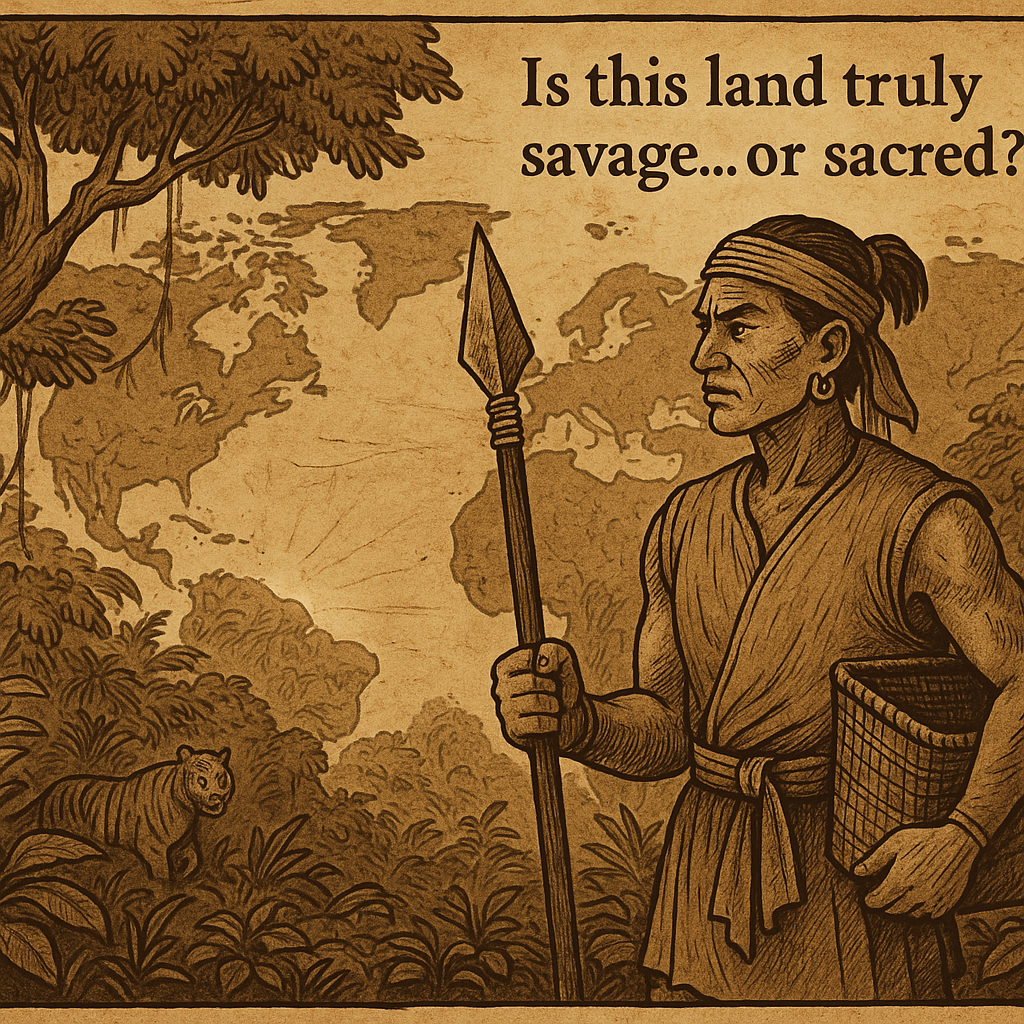— A message from the jungle to the concrete kingdoms of East Asia —
1. Introduction: When Disrespect Reveals Your Blind Spot
In conversations across borders, Southeast Asians often find themselves at the receiving end of disdainful glances or dismissive remarks from their East Asian neighbors. We’re called lazy, unstructured, poor, or backward. Some treat us like a factory floor, others as cheap labor, and many don’t even try to pronounce our countries’ names properly.
But here’s the question:
Why do you look down on us? Is it because you truly understand us—or because you’ve never tried to?
This article isn’t just a rebuttal. It’s a call for understanding. It’s a reminder that the jungle you look down on is a place you might not even survive in. And it might just hold the power to define the future of Asia itself.
2. Background: We’re Not Inferior. We’re Just Not Like You.

🌬️ History & Power Structures
East Asia (China, Korea, Japan) has long been home to centralized empires. Dynasties ruled for centuries. Authority was sacred. Discipline and conformity were rewarded. The state was everything.
Southeast Asia, on the other hand, was a sea of smaller kingdoms, networks of trade, kinship, and cooperation. Power was fluid. Authority shifted. The jungle didn’t allow for rigid systems—it demanded flexibility.
🏔️ Geography Shapes Culture
You had fertile plains, four seasons, predictable weather. You could plan years ahead. You built walls, empires, order.
We had rainforests. Mountains. Monsoons. Disease. Unforgiving soil. Nature was wild, and survival meant adapting constantly. No season was guaranteed. So we grew comfortable with chaos, improvisation, and community support systems.
🧠 The Psychology of Environment
Your society trained minds to obey rules, aim for perfection, and maintain face.
Our society trained minds to adapt quickly, sense danger, and find creative solutions in uncertainty.
Don’t call our system “unstructured.” It’s structured differently—for survival, not for show.
3. Welcome to the Jungle: The Red Ocean You Forgot
You think the Amazon is wild? Think again.
The jungles of Southeast Asia are just as ancient, dense, and merciless. Parasites, tigers, tsunamis, volcanic eruptions—you name it.
And yet we built kingdoms in them.
Angkor Wat, Borobudur, Ayutthaya Empire, Srivijaya Empire and Toungoo Empire. Civilizations born from muddy waters and volcanic ash. Surviving and thriving not in spite of nature, but with it.
What takes extreme intelligence and organization to do in your plains, takes superhuman endurance to do in our jungles.
4. The ASEAN Balloon: Rising, Quietly but Surely
Today, Southeast Asia is not just growing. We’re glowing.
- 🌶️ Thai cuisine. Vietnamese coffee. Indonesian sambal. We’ve conquered palates worldwide.
- 🎧 Music, fashion, art. Creativity from the chaos.
- 📱 Tech startups in Vietnam, Indonesia, and the Philippines are scaling faster than many East Asian ones.
- 💡 Our strength is in adaptability, multilingualism, cultural empathy. We are the bridge between East and West, North and South.
You saw us as laborers. You didn’t see that we were also builders—of systems, ideas, and futures.
5. East Asia’s Crisis: Blindness in the Mirror
You face declining birth rates. Economic stagnation. Mental health crises.
And yet, instead of looking around for new models, you cling to hierarchy and prestige.
If you keep looking down on us, you’ll miss the very future that could lift you up.
The ASEAN balloon is rising. Will you collaborate, or just spectate?
6. Conclusion: Stop the Arrogance. Start the Dialogue.
We’re not asking for your approval.
We’re asking for your attention.
Southeast Asia doesn’t need to become East Asia to be respected.
We are powerful in our own form, forged in rain, storm, and sun.
So the next time you see us through a lens of pity or scorn, look closer:
We might be the most resilient people you’ll ever meet.
Views: 2

Leave a Reply